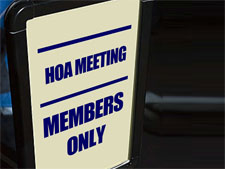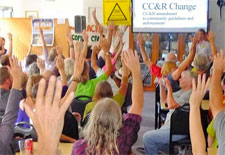 *New Legislation
*New Legislation
Commercial and Industrial Common Interest Developments (“Commercial CIDs”) in California have historically been governed by the same provisions that apply to planned residential developments and condominiums: the Davis-Stirling Common Interest Development Act (“Davis-Stirling”). However, some of those provisions have resulted in unnecessary burdens and requirements for Commercial CIDs that were really tailored to provide consumer protections for homeowners in residential settings (i.e., open meeting, election and disclosure requirements).
In light of this issue, on September 6, 2013, the California Legislature passed SB752: the Commercial and Industrial Common Interest Development Act. SB752 mirrors many of the provisions contained in Davis-Stirling, but omits some of requirements that were geared toward residential homeowners. For example, SB752 contains provisions governing Commercial CID formation, governing documents, assessments and construction defect litigation, but omits certain Davis-Stirling provisions governing association elections and disclosure requirements.
SB752 was officially signed into law by Governor Brown on October 5, 2013 and will take effect January 1, 2014.
|
This is fortunate news for the Commercial CIDs that are becoming more prevalent within the community association industry. SB752 will help to simplify the management and operation of Commercial CIDs and will provide them with a workable framework that is better suited to address their unique needs. |
 HOA Lawyer Blog
HOA Lawyer Blog



 *New Legislation
*New Legislation



 The Tinnelly Law Group has secured a favorable settlement in a breach of contract case for one of our HOA clients located in Newport Beach, California.
The Tinnelly Law Group has secured a favorable settlement in a breach of contract case for one of our HOA clients located in Newport Beach, California.
